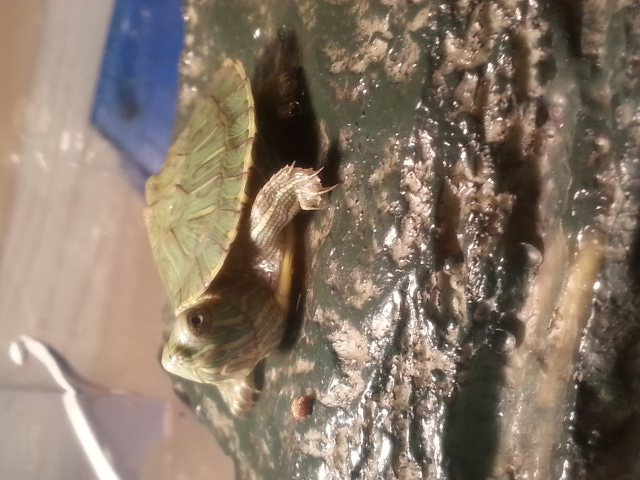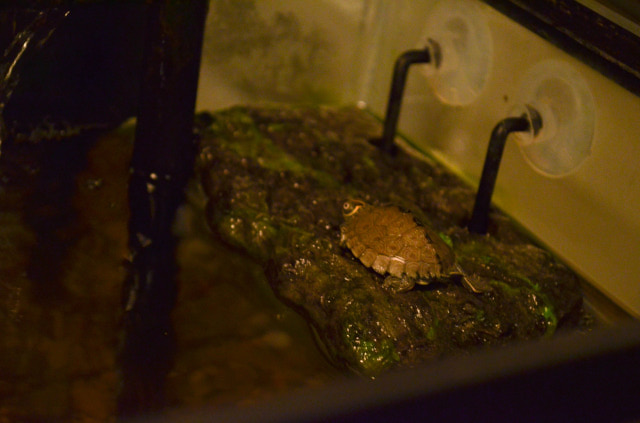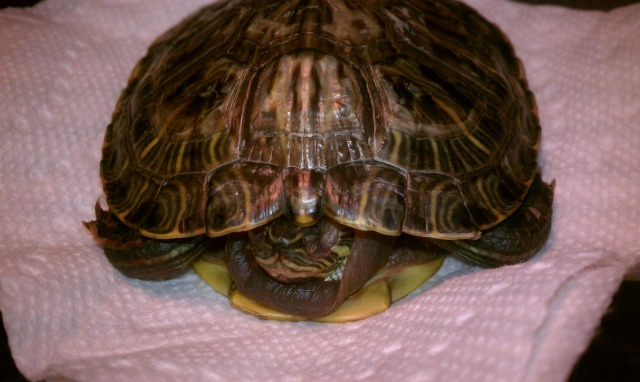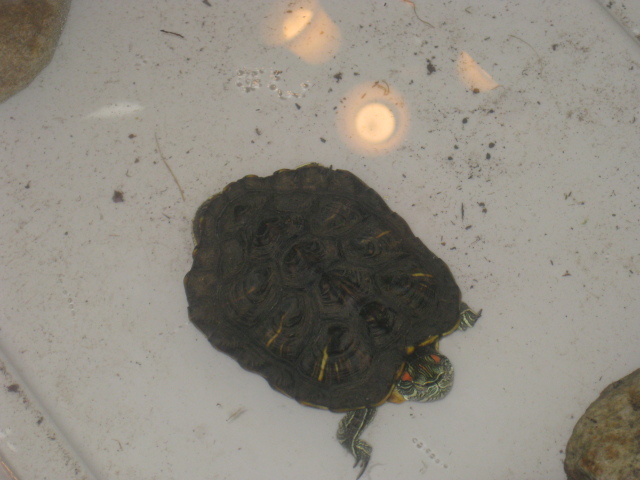QuestionHi,
My Greek tortoise (teen age) is suddenly blowing bubbles a month ago. Took him to the Vet and have been giving him Enrofloxacin via a feeding tube and a liquid diet. Ever since he suddenly cannot swallow food down his throat, and continue to throw up and bubble out his nostrils after eating everyday for the last month. Vet checked for blockage and found no issue. Even the Vet can't figure what's wrong unless he may have a tumor. Any idea?
AnswerHey there I am sorry about your tortoise. I would recommend having another vet look at him.
TREATMENT OF UPPER RESPIRATORY TRACT DISEASE
Until recently, no antibiotics or combination of antibiotics have been efficacious for treating tortoises ill with URTD. With evidence that Mycoplasma is the etiologic agent of URTD and that Pasteurella testudinis and other gram negative bacteria may contribute to the severity of the disease, antibiotic therapy with enrofloxacin (Baytril, Mobay Corp., Shawnee, Kansas) at 5 mg/kg of body weight every other day for IO treatments, is considered the therapy of choice. Additionally, injectable enrofloxacin should be diluted 1:10 in sterile saline and a small quantity (up to 0.5 cc) should be flushed up both nares of the affected tortoise utilizing a syringe and attached catheter of appropriate diameter. Flushing should be continued daily for 1 month (at least until the rhinitis has abated). Since enrofloxacin is very irritating to the mucous membranes surrounding the eyes, it is important to avoid contact of enrofloxacin with those tissues. It is important to maintain tortoises at an optimum environmental temperature during the course of treatment. While antibiotic therapy may result in clinical improvement and complete regression of clinical signs, this does not mean that this tortoise will be free of disease thereafter. Turtles may remain carriers of Mycoplasma for life with recurrence of the disease at some point in time in the future.
Results of clinical trials with these new drugs and drug combinations for treating tortoises ill with URTD are extremely promising for captive tortoises. Unfortunately the situation for ill free-ranging tortoises in not as promising. Since this disease more than likely is multifactorial, schemes for managing URTD in free-ranging populations are going to be difficult to develop and implement. Minimally tortoise hobbyists and veterinarians can make a major contribution by getting the word out that captive tortoises should not be released to the wild. More than likely this practice has contributed to the spread of URTD in wild populations of desert tortoises.
http://www.tortoise-tracks.org/publications/jacobson.html

 help please :(
Question
leo
Hi. I just ordered two baby red ear
help please :(
Question
leo
Hi. I just ordered two baby red ear
 baby RES is lethargic
Question
Baby, "Harry Potter" Malfoy &n
baby RES is lethargic
Question
Baby, "Harry Potter" Malfoy &n
 flakey substance on turtles neck and legs
Question
Red ear slider
red ear slider about 9 mos. 20
flakey substance on turtles neck and legs
Question
Red ear slider
red ear slider about 9 mos. 20
 RES turtle being treated for Septicemia
QuestionQUESTION: Hello,
I have a RES turtle being tre
RES turtle being treated for Septicemia
QuestionQUESTION: Hello,
I have a RES turtle being tre
 Possible RES Found
Question
Turtle
Hello!
One of my neighbo
Possible RES Found
Question
Turtle
Hello!
One of my neighbo